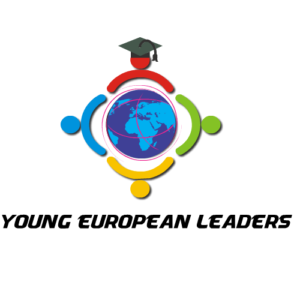The project coordinator will monitor, motivate and stimulate the innovative projectwork in all schools. The project partners (each school has a correspondent plus involved subject teachers) will communicate via e-mail, e-twinning chat-room, twinspace, facebook, skype or other communication tools. They will exchange the ideas, activity progress, share experience etc. There will be regular meetings of the project teams at each school in the course of the school year to discuss the practical matters of the activities, their evaluation and dissemination of the outcomes as well as continuous communication via TwinSpace, which has been opened for the project work, the students´ teams will post pictures,write blogs, comment on the activities, etc. At each school there will be a team of teachers being in charge of the ERASMUS+
At each school there will be a team of teachers being in charge of the ERASMUS+ projectwork consisting of team sized between 2 and 10, depending on the actual task to be conducted (debating clubs, MUN preparation, studyguide / teaching material production, …).
Teaching staff will implement an official “HOPE group for active citizenship” at each school by advertising, selection students, ensuring logistics and communication with the other partners. A-level students prepare the group meetings online by exchanging their ideas with the teachers in charge.
A-level students prepare the group meetings online by exchanging their ideas with the teachers in charge. The coordinating school LMRL ensures that all planned activities outlined in the application will be conducted as intended. It will give regular instruction, will collect and assess input from the other schools and coordinate each school’s involvement in the project.
The involved teachers supervise the club meetings professionally by suggesting topics of discussion, working on agendas and innovative methodology, organizing debates, inviting guest speakers and visitors, for example, interested teachers from the own staff as well as interested local politicians and charity representatives.
The HOPE schedule, the activities of which are referred to as A1 in the excel time chart attached to this form, is as followed:
09-11/17 The world as a global village?
– kick-off meeting in Zilina
– Which role does the individual play in a global world?
– Do you feel like a European or a world citizen?
– What does citizenship imply?
– Planning of charity actions for project year 1, depending on students’ ideas.
products of this period:
– exhibition at school
– panel discussion
– podcast with interviews and statements
12/17-02/18
What does political responsibility mean?
– Which democratic values and principles do we share/make our lives worth living?
– Where are they not given? Why? What does it mean for the citizens?
– The power of critical thinking – discussion of ethic questions using critical cases
– The power of words – first steps of debating
products of this period:
– communication skills as a printed/digital guideline for every student or our school community
– preparing ZaMUN 18
03-05/18
What does peace cost?
– ZaMUN 2018
– Compromising and negotiating in private and public life
– Is peace possible everywhere?
– How does crisis management work?
products of this period:
– interview about techniques of crises management in conflicts with the headmaster and a local politician
– a visit of the local council with “press conference” by the HOPE team
06-08/18
Different periods of summer holidays in the different countries
———————————-
09-11/18
Why does the European Union stand for European?
– preparing ToMUN 18
-“After World War II they came to build a better life…”
– What happened since then?
– How does the European Union work? Benefits?
products of this period:
– the history of the EU as a PPT presentation for the school community
– visit of the European Commission Bonn representation in Germany / European institutions in the partner countries
– Planning of charity actions project year 2
12/18 -02/19
Why does the United Nations stand for peace-keeping?
– Which structure is successful?
– “Each and every country…” – why that?
products of this period:
– role play United Nations
– useful phrases of the delegates
– writing policy papers and resolutions in the UN format
03-05/19
Why is democracy interesting, difficult, slow?
– ZaMUN 2019
– establishing a new HOPE team as an ongoing club at school by the promotion of its benefits
products of this period:
– promotion tour Planning of charity actions to find new club members
06-08/18
Different periods of summer holidays
09-11/2019
Preparing and conducting ToMUN 19 and LuMUN 19
Finalising and disseminating results and material
Each school appoints a financial project manager (usually the school accountant keeping an eye on the budget together with the project manager. They will be responsible for the proper spending of the grant in accordance with the contract funding rules and a country legislation. The coordinating school will send e-mails to remind the partners of the assignments, and will check up on all the deadlines.




